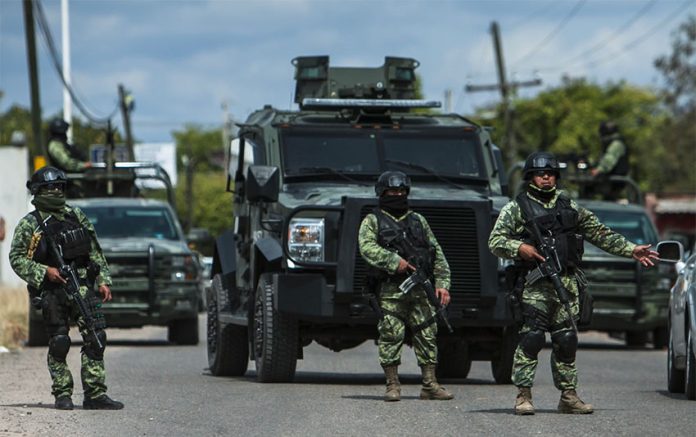Many people argue that the armed forces already have too much power in Mexico but four in 10 Mexicans wouldn’t mind having a government led by them, according to a national survey.
Developed by the national statistics agency Inegi and the National Electoral Institute (INE), the National Survey of Civic Culture (ENCUCI) found that 16.6% of respondents totally support having a military government and 23.5% somewhat support the idea.
The remaining 60% of those polled rejected the idea of having a government led by the military, to which the current federal administration has entrusted a wide range of tasks including public security and infrastructure construction.
The survey, conducted with the occupants of more than 25,000 households in urban and rural areas of the country last August and September, also found that almost eight in 10 people are in favor of having a government headed by a strong leader.
Just over four in 10 of those polled said they agreed very much that a strong leader should be in charge of the country while 36% said that they somewhat agreed. The remaining 22.5% of respondents said they disagreed.
Although 40% of the respondents indicated that they would accept a military government, 90% of those polled said they were in favor of a government that is democratic in its decision making and included experts in a range of areas such as health and the economy.
Just over half of the respondents – 52.7% – said they are satisfied with democracy as it currently works in Mexico but 46.8% said they were not. Almost one third of those polled – including perhaps many of those who indicated support for a military government – agreed that a democratic government might not always be the best option in certain circumstances.
Among the other findings of the ENCUCI were that 61% of respondents believe that laws are not respected or barely respected in Mexico and that 45% believe that reducing corruption – a central aim of the current federal government – is not possible.
The survey also found that 76% of respondents don’t trust political parties and 50.7% believe that they serve no useful purpose.
Seven in 10 respondents said they had confidence in public universities, making them the most trusted institutions in the country, while social organizations ranked second with 51.4% saying they trusted them.
After political parties, the second least trustworthy institutions are unions. Just over half of respondents said they don’t trust business leaders while just under half said they lacked confidence in the media. Two-thirds of respondents said they don’t trust public servants and other government officials.
At the presentation of the survey on Wednesday, INE president Lorenzo Córdova acknowledged that there is still mistrust about elections in Mexico, although the democratic system has made signifiant progress in recent decades after the Institutional Revolutionary Party, or PRI, ruled the country as a virtual one-party state for much of the 20th century.
“Mistrust continues to be present in the election and is even fueled by some political actors as an electoral strategy. … The mistrust of society in the state of democracy and political institutions, on one side, and the use of a discourse of mistrust as a mechanism of political action have an impact on the elections,” he said, explaining that many people are not well-informed about the improvements made to the Mexican electoral system over the past 30 years.
Source: Animal Político (sp)
